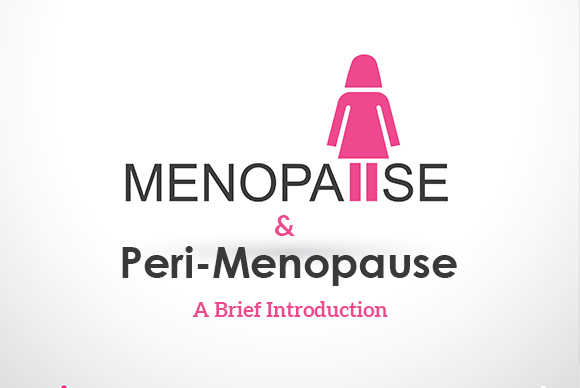Menopause and Peri Menopause – A Brief Introduction
Menopause is the natural cessation of the menstrual cycle in women. It marks the termination of reproductive age. The ovaries are reproductive glands which store eggs and release them one by one each month through the fallopian tube. It also releases the female hormones estrogen and progesterone. Altogether it controls the menstrual cycle and ovulation cycle, both contributing towards natural conception. Gynecologist defines menopause as the phase when the ovaries stop producing the same.
Read more – Hormonal Issues Faced By Women After Menopause
In general, it occurs in the late 40s to early 50s and gives an indication for a few months (sometimes even years) before it. However, it can also happen promptly due to surgical removal of ovaries or uterus or due to any illness. Peri-menopause, on the other hand, is the natural phase that begins 3-4 years before the menopause, but in many cases, it can onset even from the 30s. Women can still conceive and give birth successful while being in peri-menopause.
Several women experience some mild to severe discomfort and annoying symptoms during peri-menopause and menopause.
- A sudden, brief sensation of warmth all over the body, more commonly known as hot flashes
- Vaginal dryness and discomfort during sex
- More frequent urination or the urge to do so
- Persistent insomnia or interrupting sleep cycles
- Mood swings, that might also include periodic or unpredictable depression
- Temporary memory lapse, difficulty in concentration
- Night sweats or sudden cold flash
- Much heavier or lighter, or irregular periods
- Breast tenderness or change in size
- Change in Premenstrual syndrome
- Weight gain along with pain in joints and muscle
- Losing interest in intimacy
- Hair loss
These systems are the indication of ovaries producing less estrogen. In case any women encounter 3 or more of these symptoms for about 3-4 months and is in her late years of childbearing age (or even during), they are highly recommended to seek a gynecologist for a detailed investigation.
Menopause is NOT a disease and cannot be avoided. It is a natural, obvious phase that will onset and eventually be over. Peer to peer talk is quite helpful for most women and so is having awareness related to the changes during menopause. However, menopause comes as a hard time for many women. It is crucial to seek treatment in case the symptoms bother. At ILS Hospitals, our expert gynecologists offer extensive treatment, help, and guidance for women going through the phases of menopause.











